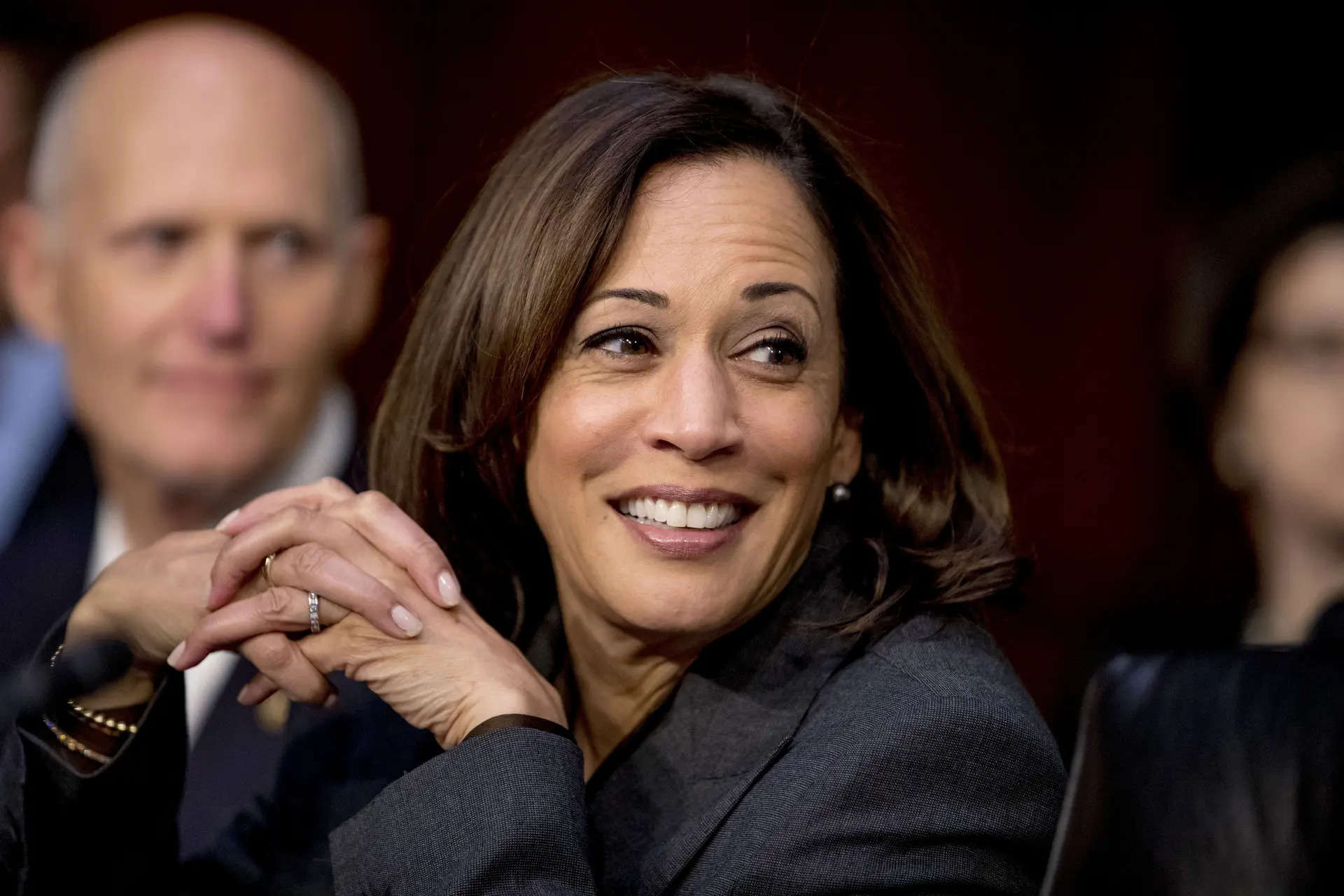Kamala Harris has made history by securing the Democratic presidential nomination, becoming the first woman of color to lead a major party’s ticket in US history. This landmark achievement reflects a significant milestone in American politics as Harris prepares to campaign for the presidency.
The Democratic National Committee confirmed Harris’s nomination following a decisive victory in the primaries.Her success marks a groundbreaking moment, as she becomes the first African American and South Asian American woman to top a major party’s presidential ticket.
Harris’s rise to the top of the Democratic ticket follows a notable career as a US Senator from California and Vice President under President Joe Biden. Her journey from a prosecutor to the second-highest office in the land and now to the top of the Democratic ticket underscores her significant impact on the national stage.
Rapid nomination process
Harris and her team moved swiftly to secure the necessary support from the 1,976 party delegates, reaching this milestone just 32 hours after Biden’s exit. The Democratic National Convention delegates confirmed Harris’s nomination through a five-day online balloting process, with 99 percent of delegates casting their votes in her favor. The formal certification of the vote is scheduled for later this month, followed by a celebratory roll call at the convention in Chicago.
Public perception and campaign strategy
An AP-NORC Center for Public Affairs Research poll revealed that 46 per cent of Americans view Harris favorably, while a similar percentage holds an unfavorable view. Despite this, Harris’s candidacy has energized the Democratic base, offering a stark contrast to former President Donald Trump. Her campaign plans to continue the themes of democracy, gun violence prevention, and abortion rights, while leveraging her prosecutorial background to address Trump’s legal challenges.
Background and early political career
Born on October 20, 1964, in Oakland, California, Harris is the daughter of Shyamala Gopalan, an Indian breast cancer researcher, and Donald Harris, a Jamaican economics professor. Her parents’ advocacy for civil rights shaped her early political outlook. Harris’s career began as a prosecutor before becoming California’s Attorney General in 2010 and a U.S. Senator in 2016.
Harris’s initial presidential campaign in 2020 ended before the Iowa caucuses due to internal issues and shifting campaign strategies. However, her selection as Biden’s vice presidential running mate in 2020 marked a turning point, leading to her prominent role in the administration.
Vice Presidency and transition to presidential candidate
As Vice President, Harris faced challenges, including leading diplomatic efforts on Central American migration and navigating public scrutiny. Her visibility increased following the Supreme Court’s 2022 Roe v. Wade ruling, where she became a key spokesperson for abortion rights.
Following Biden’s exit from the race, Harris’s campaign has gained momentum, particularly in battleground states. Her renewed candidacy has sparked significant enthusiasm among Democrats, with donations and volunteer support surging.
Facing Republican criticism
Harris is expected to face intense scrutiny from the Trump campaign, which has already begun defining her candidacy with attacks on her immigration record and questioning her diversity. Harris has responded by emphasizing her commitment to unifying the country and addressing divisive rhetoric.
The Democratic National Committee confirmed Harris’s nomination following a decisive victory in the primaries.Her success marks a groundbreaking moment, as she becomes the first African American and South Asian American woman to top a major party’s presidential ticket.
Harris’s rise to the top of the Democratic ticket follows a notable career as a US Senator from California and Vice President under President Joe Biden. Her journey from a prosecutor to the second-highest office in the land and now to the top of the Democratic ticket underscores her significant impact on the national stage.
Rapid nomination process
Harris and her team moved swiftly to secure the necessary support from the 1,976 party delegates, reaching this milestone just 32 hours after Biden’s exit. The Democratic National Convention delegates confirmed Harris’s nomination through a five-day online balloting process, with 99 percent of delegates casting their votes in her favor. The formal certification of the vote is scheduled for later this month, followed by a celebratory roll call at the convention in Chicago.
Public perception and campaign strategy
An AP-NORC Center for Public Affairs Research poll revealed that 46 per cent of Americans view Harris favorably, while a similar percentage holds an unfavorable view. Despite this, Harris’s candidacy has energized the Democratic base, offering a stark contrast to former President Donald Trump. Her campaign plans to continue the themes of democracy, gun violence prevention, and abortion rights, while leveraging her prosecutorial background to address Trump’s legal challenges.
Background and early political career
Born on October 20, 1964, in Oakland, California, Harris is the daughter of Shyamala Gopalan, an Indian breast cancer researcher, and Donald Harris, a Jamaican economics professor. Her parents’ advocacy for civil rights shaped her early political outlook. Harris’s career began as a prosecutor before becoming California’s Attorney General in 2010 and a U.S. Senator in 2016.
Harris’s initial presidential campaign in 2020 ended before the Iowa caucuses due to internal issues and shifting campaign strategies. However, her selection as Biden’s vice presidential running mate in 2020 marked a turning point, leading to her prominent role in the administration.
Vice Presidency and transition to presidential candidate
As Vice President, Harris faced challenges, including leading diplomatic efforts on Central American migration and navigating public scrutiny. Her visibility increased following the Supreme Court’s 2022 Roe v. Wade ruling, where she became a key spokesperson for abortion rights.
Following Biden’s exit from the race, Harris’s campaign has gained momentum, particularly in battleground states. Her renewed candidacy has sparked significant enthusiasm among Democrats, with donations and volunteer support surging.
Facing Republican criticism
Harris is expected to face intense scrutiny from the Trump campaign, which has already begun defining her candidacy with attacks on her immigration record and questioning her diversity. Harris has responded by emphasizing her commitment to unifying the country and addressing divisive rhetoric.
Source : Times of India






